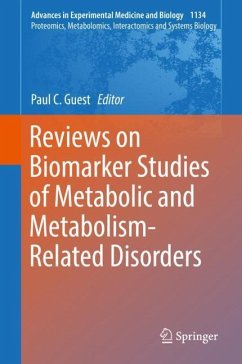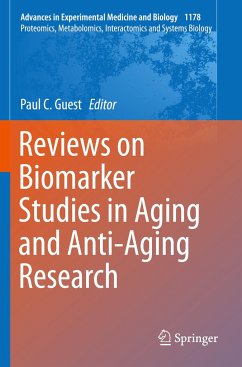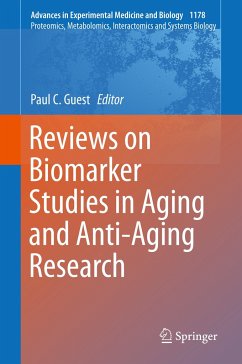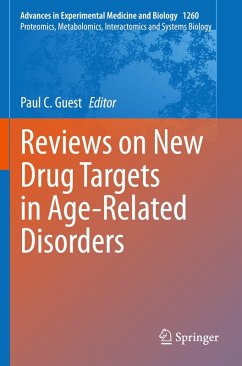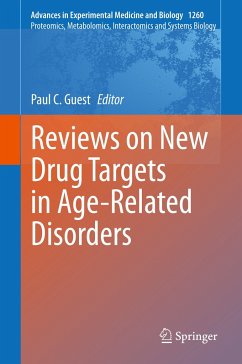
Reviews on Biomarker Studies of Metabolic and Metabolism-Related Disorders
Versandkostenfrei!
Versandfertig in 6-10 Tagen
113,99 €
inkl. MwSt.

PAYBACK Punkte
57 °P sammeln!
The book recognizes that throughout the scientific, medical, and economic communities, new tests incorporating biomarkers are needed to improve the diagnosis of patients suffering from metabolic disorders. The early identification of those at risk of developing obesity will help to place these individuals on the best treatment course as early as possible for improved treatment outcomes. This will also help to cut costs incurred by the healthcare services. For all of this to occur, new research efforts are needed to identify novel biomarkers that can be used to predict the disease in the presym...
The book recognizes that throughout the scientific, medical, and economic communities, new tests incorporating biomarkers are needed to improve the diagnosis of patients suffering from metabolic disorders. The early identification of those at risk of developing obesity will help to place these individuals on the best treatment course as early as possible for improved treatment outcomes. This will also help to cut costs incurred by the healthcare services. For all of this to occur, new research efforts are needed to identify novel biomarkers that can be used to predict the disease in the presymptomatic stage, for disease monitoring and for prediction of treatment response. It is also possible that new drug targets can be identified using these approaches which, in turn, can lead to the development of new treatment approaches. This volume also includes a series of reviews on biomarker discovery and usage in the study of diseases marked by perturbations in metabolism. It will describe the pros and cons of the various approaches and cover the successes and failures in this important research field.





